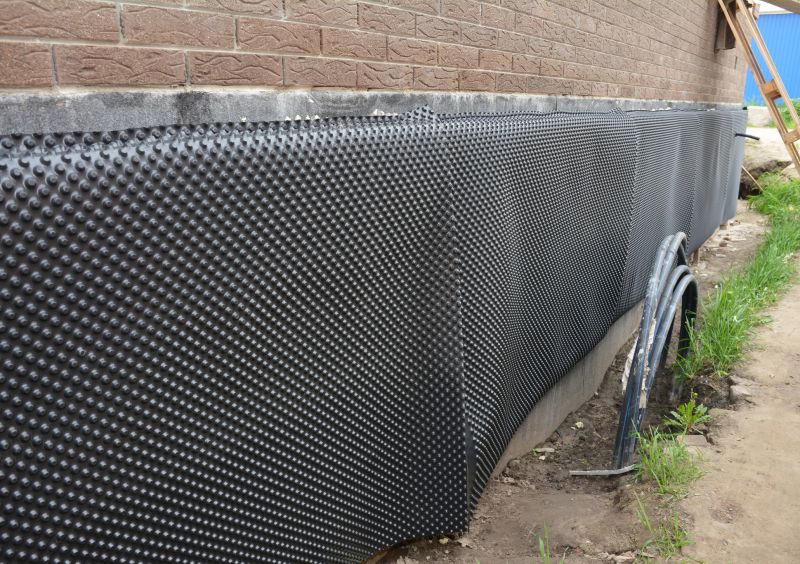Top Waterproofing Products to Protect Your Property Effectively
Explore the leading waterproofing solutions designed to prevent leaks and water damage for lasting protection.
 In the realm of waterproofing solutions, selecting the right products is essential for protecting structures from water intrusion and damage. Waterproofing products come in various forms, each suited to different applications, whether for basements, roofs, foundations, or interior spaces. These products help create a barrier against moisture, preventing issues such as mold, mildew, and structural deterioration. When choosing waterproofing materials, it is important to consider factors such as the specific area of application, exposure to water, and compatibility with existing surfaces.
In the realm of waterproofing solutions, selecting the right products is essential for protecting structures from water intrusion and damage. Waterproofing products come in various forms, each suited to different applications, whether for basements, roofs, foundations, or interior spaces. These products help create a barrier against moisture, preventing issues such as mold, mildew, and structural deterioration. When choosing waterproofing materials, it is important to consider factors such as the specific area of application, exposure to water, and compatibility with existing surfaces.
Top Overall Option
Liquid Waterproofing Membrane
A versatile liquid membrane can be applied to various surfaces to provide a seamless, flexible barrier against water infiltration. It is suitable for both interior and exterior applications, including roofs, basements, and foundations. When properly applied, it offers durable and consistent coverage, helping to prevent leaks and moisture intrusion. This type of waterproofing product is appreciated for its ease of use, quick drying time, and adaptability to irregular surfaces.
Types of Products For Waterproofings
Bituminous Membranes
Self-adhesive or torch-applied membranes made from bitumen, ideal for roofing and foundation waterproofing.
Liquid Rubber Coatings
Rubberized liquid coatings that form a flexible, waterproof layer on various surfaces, suitable for roofs and decks.
Polyurethane Sealants
High-performance sealants used to fill joints and cracks, providing waterproof seals in construction and repair projects.
Cementitious Waterproof Coatings
Waterproof cement-based coatings that are easy to apply on concrete and masonry surfaces, often used for basements.
Spray-On Waterproofing
Sprayable membranes that offer quick coverage for roofs, decks, and other large surfaces requiring waterproofing.
Sheet Membranes
Pre-formed sheets made of rubber or plastic that are installed on foundations and roofing to prevent water ingress.
Bitumen Coatings
Liquid or paintable bitumen coatings used to create a waterproof layer on various building surfaces.
Waterproofing Paints
Specialized paints designed to provide a waterproof barrier on walls and ceilings, often used indoors.
Crystalline Waterproofing
Chemical treatments that penetrate concrete to form insoluble crystals, blocking water passage.
Epoxy Sealants
Durable sealants used for concrete repairs and waterproofing, especially in industrial settings.
Hydrostatic Pressure Waterproofing
Products designed to resist water pressure from surrounding soil, suitable for basements and retaining walls.
Polymer Modified Cement
Enhanced cement formulations that improve flexibility and waterproofing capabilities for concrete structures.
Vapor Barriers
Materials installed to prevent moisture vapor from passing through walls or floors, protecting interiors.
Popular Choices
A widely used option for creating seamless waterproof barriers on various surfaces, appreciated for its versatility.
Commonly selected for roofing and foundation projects, offering reliable waterproofing with durable properties.
Popular for sealing joints and cracks, providing flexible and long-lasting waterproof seals.
Frequently chosen for basement waterproofing due to ease of application and compatibility with concrete surfaces.
Favored for large surface areas like roofs and decks, offering quick and uniform coverage.
Pre-fabricated membranes that are easy to install, providing reliable waterproofing for foundations and roofs.
Used indoors and outdoors to create a protective barrier on walls and ceilings against moisture.
Popular for concrete structures requiring deep penetration and long-term water resistance.
Often selected for industrial or structural repairs where high durability is needed.
Ideal for areas exposed to water pressure, such as basements and retaining walls.
Commonly used in flooring and wall assemblies to prevent moisture vapor transmission.
Proper waterproofing not only extends the lifespan of buildings but also enhances safety and reduces maintenance costs over time. From liquid sealants to membrane systems, the options available cater to diverse needs and preferences. Ensuring a thorough understanding of product features and application methods can lead to more effective and durable results. For residents and contractors in Reading, PA, having reliable waterproofing solutions can make a significant difference in safeguarding properties against Pennsylvania's varying weather conditions.
Overall, the selection process involves evaluating the type of waterproofing material that best suits the project scope, environmental exposure, and budget. It is advisable to follow manufacturer instructions carefully and consider professional consultation for complex or large-scale applications. With the right products, homeowners and builders can achieve effective moisture protection that maintains the integrity and value of their properties for years to come.
Key Buying Considerations
- Identify the specific area requiring waterproofing, such as roof, basement, or wall.
- Determine the type of water exposure, including standing water, hydrostatic pressure, or vapor transmission.
- Select a product compatible with the surface material, whether concrete, wood, or masonry.
- Consider the application method and ease of installation, especially for DIY projects.
- Evaluate the durability and flexibility of the product to accommodate building movement.
- Check for appropriate curing time and environmental conditions during application.
- Assess the longevity and maintenance requirements of the waterproofing solution.
- Review manufacturer instructions and warranty details for reliability.
- Factor in the climate and weather conditions typical of Reading, PA, to ensure suitability.
- Determine if the product is suitable for interior or exterior use, or both.
- Consider budget constraints while balancing quality and performance.
- Research user reviews and professional recommendations for insights.
- Ensure proper surface preparation before application for optimal results.
- Verify if the product is compatible with existing waterproofing systems or materials.
- Look for products with good coverage area per application to reduce costs.
